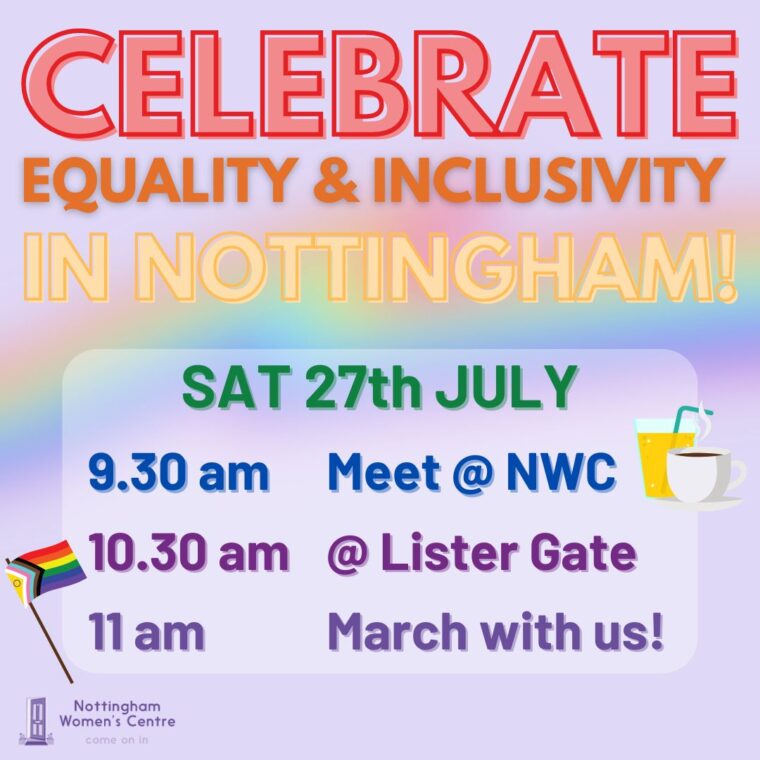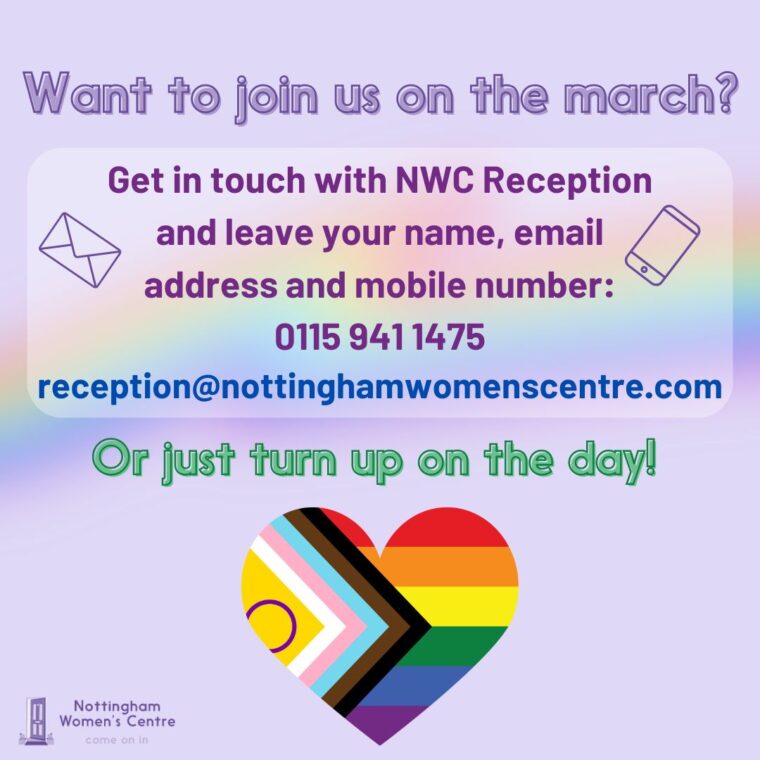Join Nottingham Women’s Centre and our partners on the march!
Want to be a part of this celebration of equality and inclusivity in our city? Then join us at the march for visibility, education and celebration on Saturday 27th July 2024! Meet up with us before the march at Nottingham Women’s Centre (NWC) from 9.30am if you’re coming on your own or want to arrive as part of a group. Then head over to Lister Gate with us, to lead the march through Nottingham city centre.
We’ll be up at the front of the march this year, proudly representing an inclusive women’s sector. We’ve been providing support and sanctuary to all self-identifying women, in the heart of the city for over 50 years. We’re proud to take part in the East Midlands’ biggest all-embracing Pride event. As part of Notts Pride and the global Pride movement, we believe in celebrating all LGBTQIA+ people and challenging discrimination. Nottinghamshire should be a place to be proud of – a city and county where everyone feels safe and is not afraid to be themselves.

We’ll be at the Centre from 9.30am with tea and biscuits and other refreshments. There’ll be info about NWC and our partners, free period products, as well as stickers, badges and other fun and festive items for the day! We’ll be heading over to Lister Gate to join the start of the march at around 10.30am. You can also meet us at Lister Gate between 10.30am and 11am. Just look out for the big purple banner that says ‘Nottingham Women’s Centre’!

Want to join us on the Notts Pride march? Get in touch with NWC Reception and leave your name, email address and mobile number: 0115 941 1475 / reception@nottinghamwomenscentre.com, or come along to the Centre or the start of the march at Lister Gate on the day.
*Please note, when joining us on the march at Notts Pride, there will be press and photographers present in a public space. This means that photos may be taken of us all as part of the march and crowd, without the requirement for prior consent.
See the route planned for this Saturday 27th July!











